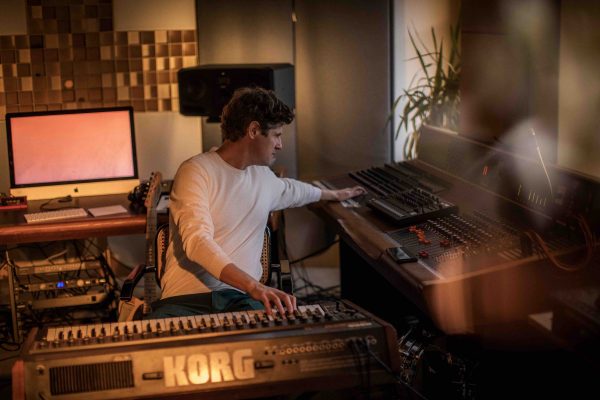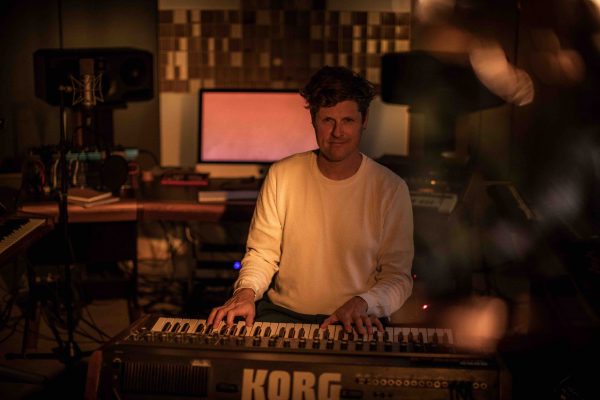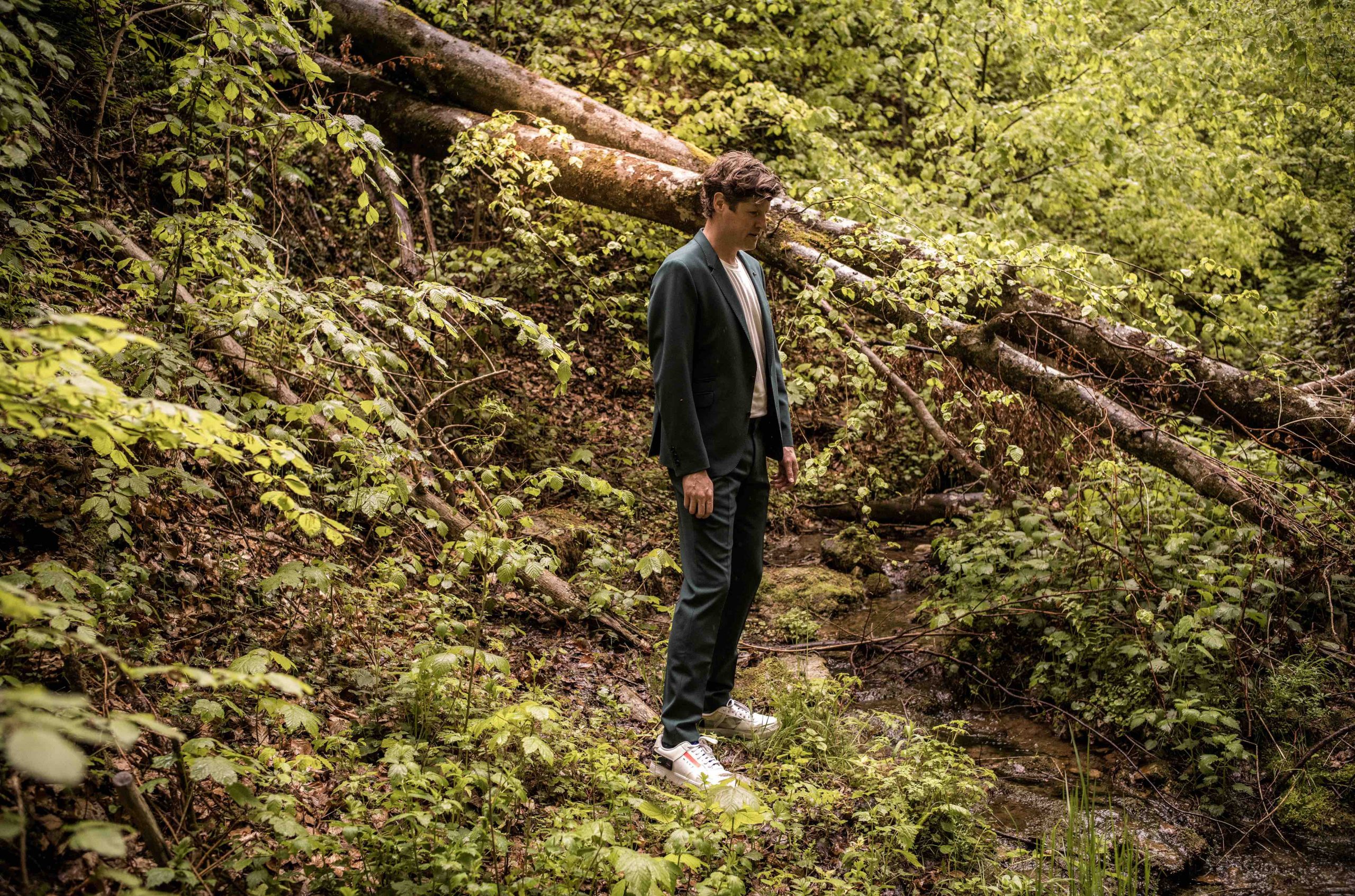“Thanks to Mano Le Tough I’m not afraid (for) the future of house music.” That’s what Âme and Innervisions’ Kristian Beyer reckoned back in 2012 when the Guardian asked him to peer into his musical crystal ball. Beyer and Innervisions cohort, Dixon had been staunch supporters of Mano Le Tough’s (Niall Mannion) music, his tracks regularly making an appearance in their DJ sets. The Irish producer and DJ had become a sought-after presence in some of Europe’s most lauded DJ booths, and while the Innervisions confirmation was welcomed, Mano Le Tough’s career hardly needed the reinforcement, even then. ou don’t become a meme without having some clout on the scene, after all.
By the time Beyer’s quote surfaced, it’s fair to say Mano Le Tough had already established himself, forging a distinctive path as a DJ and artist, putting him in that upper echelon where the kind of people cheering him on resided. “2012 is when things really started to speed up, when I started doing over 100 gigs a year, and released my first album,” he confirmed in The Irish Times. It was year zero in becoming a household name, but he wasn’t exactly an overnight success either.
Growing up in Ireland, we don’t know much about Niall Mannion’s life before Mano Le Tough. Bits from interviews suggested he was a quizzical music fan, but with early influences like Radiohead being referenced and the fact that he had “been in bands” when he was younger, it seems Mannion was more at ease with a guitar than a synthesiser during his formative years. At some point the switch to electronic music must have happened because by 2007, he had garnered a following on Myspace and made the move to the electronic music capital, Berlin.

“It was fairly meagre when I first got to Berlin,” Mannion told The Irish Times, reflecting on that time. “I was working in an Irish pub, actually a couple of different pubs, and running small parties with friends.” Earning his chops in what would have been a very busy and competitive Berlin scene at the time, he put in his time as Mano Le Tough and his efforts were soon rewarded. “I wouldn’t be where I am today if I wasn’t determined,” he told XLR8R during an interview a while back. “Chasing the dream” during this period, there were a couple of key events that set him on the trajectory.
Going to Red Bull Music Academy in 2010 was “one of the most important developments” and then when everyone started playing his track Primitive People, it too became a “cornerstone” of his career. It was the first release from his debut LP and with people like Tale of Us and Dixon jumping on the remixes, it played a seminal role in propelling Mano Le Tough to the forefront of the world stage as a DJ. And where most would shrink in the shadow of some of the world’s most renowned DJ booths, Mano Le Tough, dominated it. Abated by his experiences when he was still a burgeoning DJ, he became a familiar headliner all across Europe, with the prowess to back up his rising reputation.
He can easily go 10 hours behind the decks, and still “routinely” does without breaking a sweat, and it’s that skill that installed the name Mano Le Tough beyond Primitive People, and continues to be a drawcard for old and new audiences alike.
“You really have to look after your relationship with DJing,” Mannion explained in XLR8R. “If you do it too much, or you play in the wrong places, the love for it can fade, and you can’t really come back from that place—unless you have a break from it.” The tight-rope act he walks has secured his precarious position between the underground electronic music scene and the big rooms he plays week in and week out.
Known for his immersive journeys, Mano Le Tough’s sets are fluid expressions through his unique vision of House music which concurrently had a broad appeal on the dance floor. When the likes of Resident Advisor were still doing DJ rankings, he would often be in the top tier of these lists, and when Boiler Room came along he would be one of the first guests to break a million views on the platform.
Such was and is his popularity as a DJ that it often overshadows his work as a producer, but it’s exactly for his records that the Innervisions guys first singled him out (and for records not even on their label) and why he remains in the purview of our scene.
In his work in the studio we have the same kind of ethos that drives his experiences as a DJ. “If you try to produce records to fit in with trends then you’re already two steps behind,” Mannion told XLR8R around the time his second LP Trails was released. A lot had changed since his debut LP Changing Days by the time of Trails. “I’ve developed a lot in terms of production technique, and I trust myself a lot more in terms of taking chances. I was much more open with the process, and I had a lot more confidence.”
The LP coincided with a move to Switzerland where it was quite a different experience than his time in Berlin, where “the line [between home and work] was far more blurred.” Moving to Switzerland was “a really positive thing for everything, music included,” he explained in XLR8R. “It’s given me so much energy and that has given me clarity of thought,” he continues. “It’s offered me the opportunity to really develop as an artist.” The result was the “deepest, most personal” work to that date. It came during a time of manic creativity, but reflecting on the LP much later he would also say: “In fact, after Trails, I said I’d never do another one because it didn’t go as well as I wanted it. I rushed the whole thing. I should have just stepped back and given it more time.”
This is something he felt that he could correct by the time he reached his third and latest offering in the long format, facilitated in part by the first wave of the pandemic. “I’d wanted to make a new album but that process was getting interrupted every year by being on the road too much,” he told Musicradar at the time.” This time, although it was extremely difficult for many reasons, being at home gave me the chance to work properly on the record and finish it.” The result was At the Moment, an album that’s a departure from anything else he’s done in the past, moving the furthest from those House-music inclinations into a more organic realm.

Time seems to slow during the record as inert guitar licks and slothful dubbed-out rhythms collide in miasmic atmospheres. Mano Le Tough’s sterile touch prevails in a glossy exterior that hides tumultuous layers. His voice dominates on this record more than ever and there is something in those youthful influences like Radiohead and some new ones like Steve Reich that certainly come to the fore here. “I felt that I was going full circle back to the music I grew up with,” he confirms in Musicradar, “but filtering it through the lens of my electronic music or DJ career.”
He stopped short of calling it a complete evolution in his work. “I wouldn’t say it’s a change in direction, just the logical next step.” It’s a dramatic step nonetheless, more like a leap, and it certainly changes the perspective of his music. Is it still House music at this point? It’s up to the listener, but it certainly channels some obvious references from House music, enough for people from Resident Advisor to be able to still associate. In Henry Ivry ‘s review of the record, he called it “a surprising and refreshing record” marking specifically the “swaggering guitar hero” tone that it sets throughout.
I’m curious what Âme’s Kristian Beyer would think of it and if he’d still stand by his 2012 quote. My guess is yes, because if you hear what the likes of Bonobo, George FitzGerald and Ross from Friends are doing in House music echelons, we’re certainly moving towards the very same sound Mano Le Tough is perpetuating through his last record.
How does this influence what he does in the booth today? Probably little. While the nature of the recorded format has changed, especially in the realm of albums, the DJ is still a facilitator for a dance floor, and in that respect Mano Le Tough is a master at work. We’d expect nothing less than the cumulative experiences of a DJ that has made an indelible mark on the scene.

